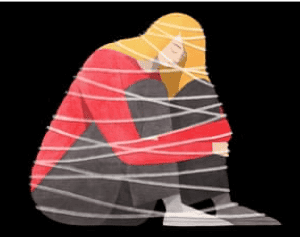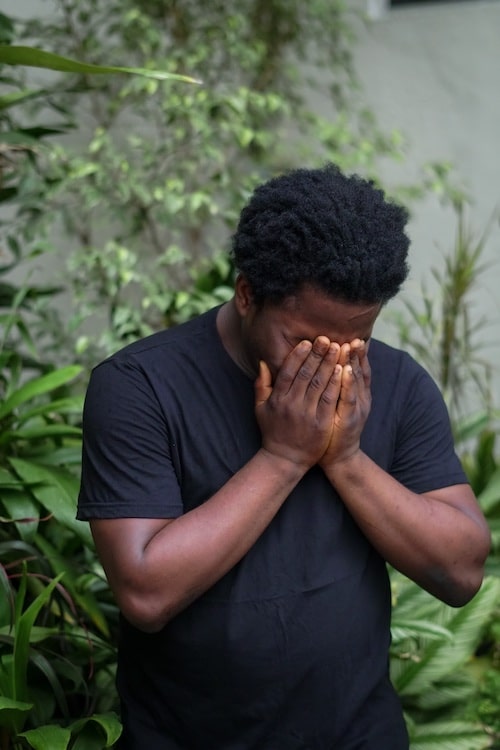We enjoyed an interesting and thought provoking in-person seminar with our host, Briony Martin. The…

The Role of Coercive Control in Sexual Relationships: from flirting and banter to sexual harassment and rape – with Christiane Sanderson (Oct. 2020)
Christiane Sanderson set out the objectives of the day, which were to explore the spectrum of sexual violence and rape and to contextualise it by looking at power, control and privilege as the drivers. Alongside this, she focussed on the issue of consent and suggested how conditioning from childhood makes saying NO feel wrong. This, she believes is particularly challenging for women who may have been taught as children that they cannot say no to a man and then may find themselves in a position of not being able to say no when they feel threatened.
The powerful message I took from much of what Chrissie spoke about was the importance of asserting oneself. When this gets lost, we become voiceless and powerless.
It was interesting to consider the spectrum of sexual violence, including flirting and ‘locker room banter’, which for many are considered harmless and normalised. Again, Chrissie’s focus on consent and mutuality acted to highlight how often the seemingly harmless can be a pre-cursor to escalating sexual violence, or indeed an unwanted, uncomfortable and inappropriate advance in itself. She also talked through the different barriers to consent, which are a reality for so many people.
Chrissie showed us the short film, ‘Consent, It’s simple as Tea’(which can be found on Youtube), which uses the metaphor of offering a cup of tea to someone and their right to say no to that at any stage, to explain that the same applies with sex. Its simple, yet powerful message ran throughout the seminar, augmented by Chrissie’s belief that it is requisite for both parties to take responsibility for consent.
Chrissie spoke about the different settings in which sexual violence take place, including in the military, religious settings, sports, prisons and war zones as well as within families, including between siblings, cousins, grandparents and extra-familiar settings, such as residential homes, faith schools and boarding schools.
We were introduced to the Power, Threat, Meaning Framework *(The British Psychological Society – The Power Threat Meaning Framework) which was developed by Johnstone and Boyle to help practitioners understand the distress, confusion, fear and despair experienced by survivors of sexual violence. Chrissie highlighted how using this model can help to increase a client’s sense of power, by asking core questions, such as ‘What happened to you?’, ‘How did it affect you?’ and ‘What are your strengths?’ and ‘What is your story?’. She spoke of the importance of being aware of trauma and its impact, ie Trauma Informed Practice and spoke of a 3 phased model: Stabilisation, Processing and Integrating, leading to post-traumatic growth.
She concluded by stressing that practitioners need to have a deeper understanding of both their own and their clients relationship to sex, sexuality and sexual violence, to enable clients to feel more comfortable when talking about their sexual experiences without evoking feelings of shame.
At this Zoom based Seminar, Chrissie welcomed our input, questions and reflections, ensuring that this was an interactive experience for the delegates. Her deep understanding of this complex area was evident throughout the seminar, which she conveyed to us in a compassionate, informed and accessible way.
The seminar was packed full of Chrissie’s knowledge of and expertise on this challenging subject and she generously shared a huge amount of information, ensuring that there were plenty of opportunities for questions and comments from the delegates. I am sure I speak for everyone who attended in expressing my thanks for her enthusiasm in conveying so much information in such a relatable, non-judgemental way.
Chrissie Sanderson is a senior lecturer in psychology at the University of Roehampton and has over 25 years experience working with sexual abuse both in adults and children, sexual violence, complex trauma and domestic abuse.
* The link has been sent to us by Sarah House (delegate) who has kindly let us know that she believes they will send out a paper copy if anyone emails them at p4p@bps.org.uk
By: Mel Dundas, Counsellor BACP & UKCP Accred.
_________________________________________________________________________________________________________________
Average feedback scores from our event:
Organisation of event: 4.7 out of 5
Speaker: 4.8 out of 5
_________________________________________________________________________________________________________________
Feedback from our event:
“This is by far the best CPD I’ve experienced in a long while. I spend a lot on CPD, and to be honest, nine times out of ten it’s just ok at best. This and previous training I’ve done (both with Christiane) have been worth every single penny.” Liz Smith
“Excellent seminar, well presented with slides, enough time for discussion, online worked well. Christiane Sanderson is clear and concise and offers her knowledge and experience as well as up to date information which is valuable.”
“Thank you this has been really enriching and helpful”
“Such a rich day of learning. Relevant to every client I work with”




A very informative and enriching day-so useful with couple work and with great handouts.
Extremely well organised in these difficult times-well done Wendy as always.